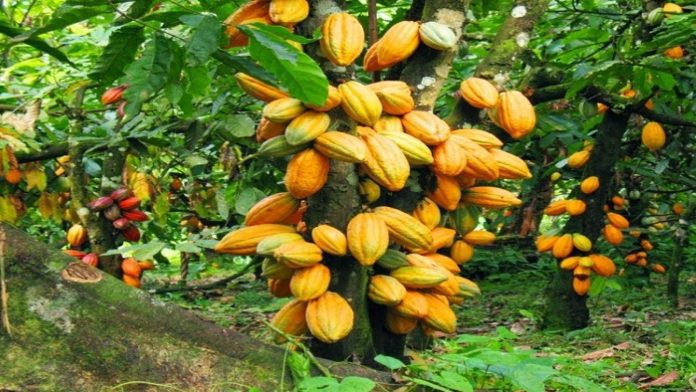News in Brief:
– Nigerian cocoa stakeholders are urging the government for increased support, including funding for farm input subsidies.
– The appeal aims to enhance production amid a global surge in cocoa prices driven by supply chain disruptions.
Stakeholders in the Nigerian cocoa sector have called on the federal government to provide critical support to enhance production and productivity.
The appeal was made by the Director-General of Cocoa Roundtable Initiative (CORI), Comrade Adeola Adegoke in an open letter to Nigeria’s president, Bola Tinubu.
According to Adegoke, who doubles as the National President of the Cocoa Farmers Association of Nigeria (CFAN), the appeal became necessary owing to the need for more funding for the association.
Essentially, the CFAN president believes the committee, established to regulate the sector, requires adequate funding to effectively address challenges like quality control, contract arbitration, child labour, and deforestation.
Funding for the national task force on EUDR and subsidies
Comrade Adegoke opines that the European Union Deforestation Regulation (EUDR) poses significant challenges to the global cocoa market. Therefore, the task force needs funding to ensure compliance and maintain market access for Nigerian cocoa.
Additionally, to boost production, stakeholders advocate for government subsidies on essential inputs such as fertilisers and improved seedlings for cocoa farmers.
Effectively, Adegoke highlighted the sector’s significant contribution to the economy, with cocoa exports surging in the first quarter of 2024.
The country’s cocoa exports increased by 298% in the first half of 2024, a 304% increase, reaching N644 billion compared to N161.8 billion in the same period of 2023.
He noted the need for a stable pricing mechanism to benefit both farmers and the industry.
Meanwhile, the establishment of the NCMC in 2022 aimed to address concerns raised by farmers regarding the unregulated cocoa market and the challenges of low production and productivity.
Global cocoa market dynamics
Globally, cocoa prices surged by 180% in 2024, reaching an all-time high of over $12,900 per tonne. This unprecedented surge made cocoa the best-performing commodity of the year.
Factors driving this price surge include;
- Production Challenges: Production disruptions in major cocoa-producing nations like Ivory Coast and Ghana due to factors such as adverse weather conditions and diseases significantly impacted global supply.
- Supply Deficit: The decline in production created a global supply deficit, driving prices upwards.
Market outlook for 2025
Experts anticipate that cocoa prices will remain strong in early 2025. The commodities market is expected to face continued uncertainty next year, with escalating tensions between major trading blocs potentially leading to increased tariffs. This could contribute to volatile cocoa prices.
While emerging cocoa producers in Latin America and elsewhere may eventually alleviate West African supply shortages, their impact is not anticipated to be significant in the near term.
Overall, while the Nigerian cocoa sector faces its share of challenges, the sector stands to benefit from the strong global market conditions, according to analysts.
To this end, they note the significance of government support and increased productivity as crucial to capitalise on the favourable market dynamics and ensure a sustainable future for the Nigerian cocoa industry.



